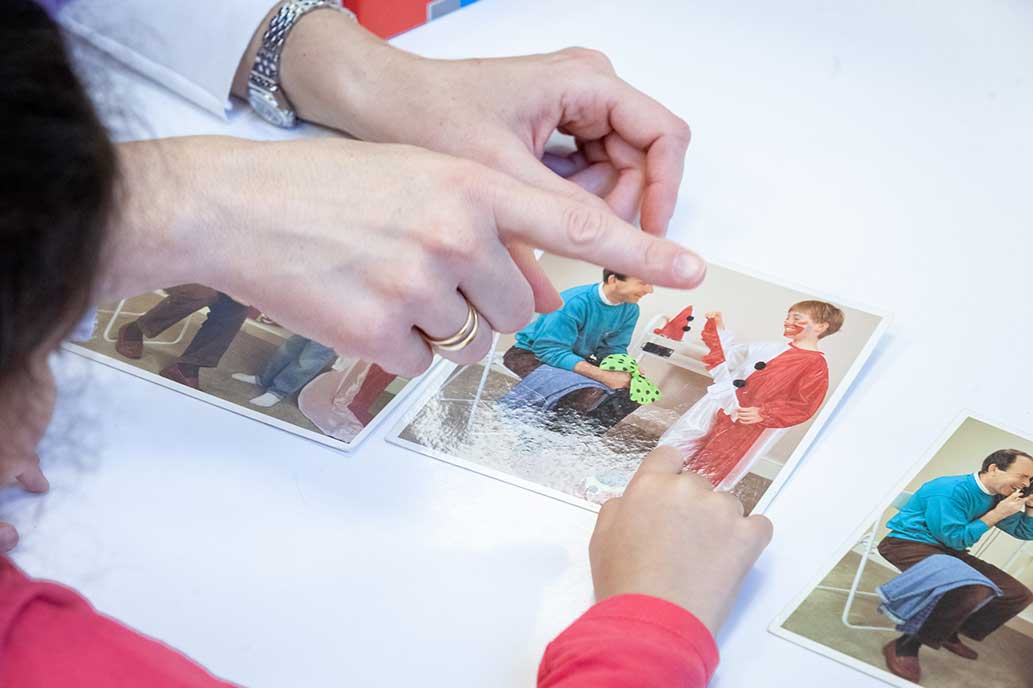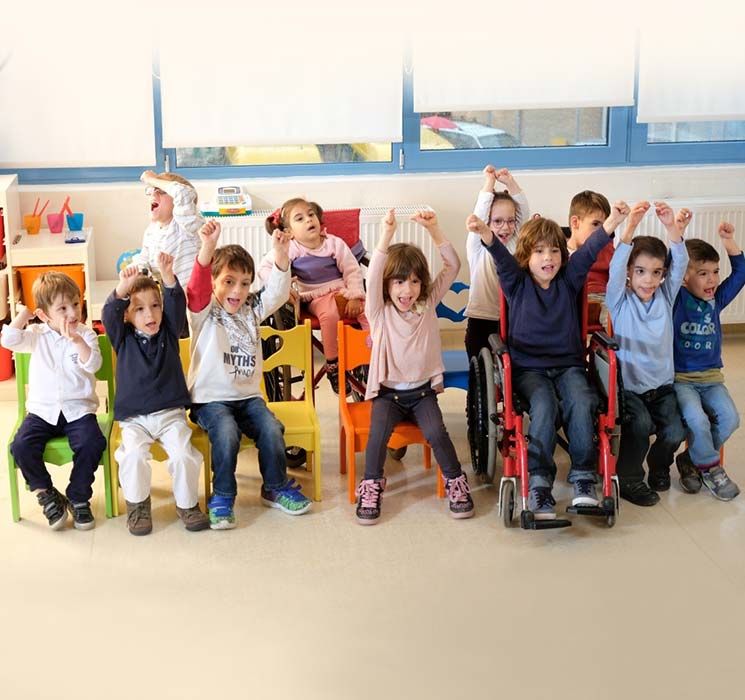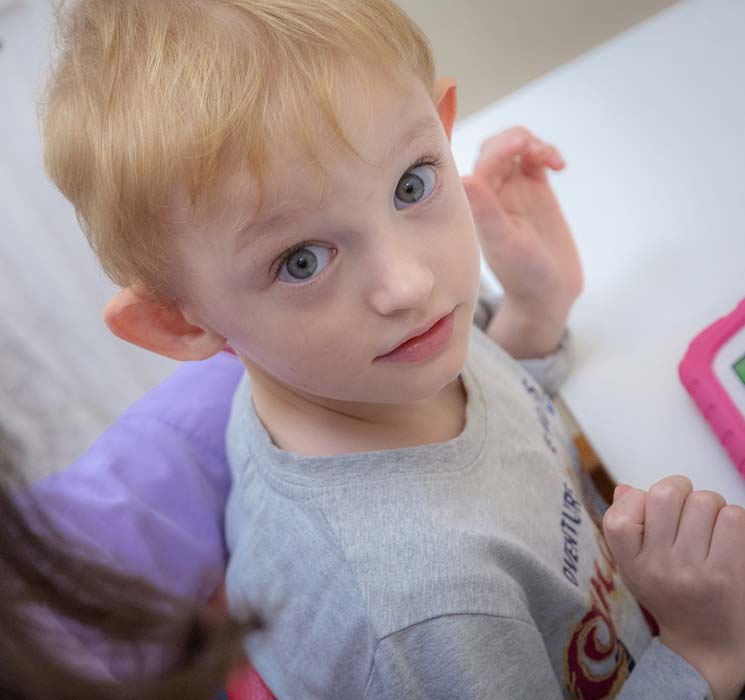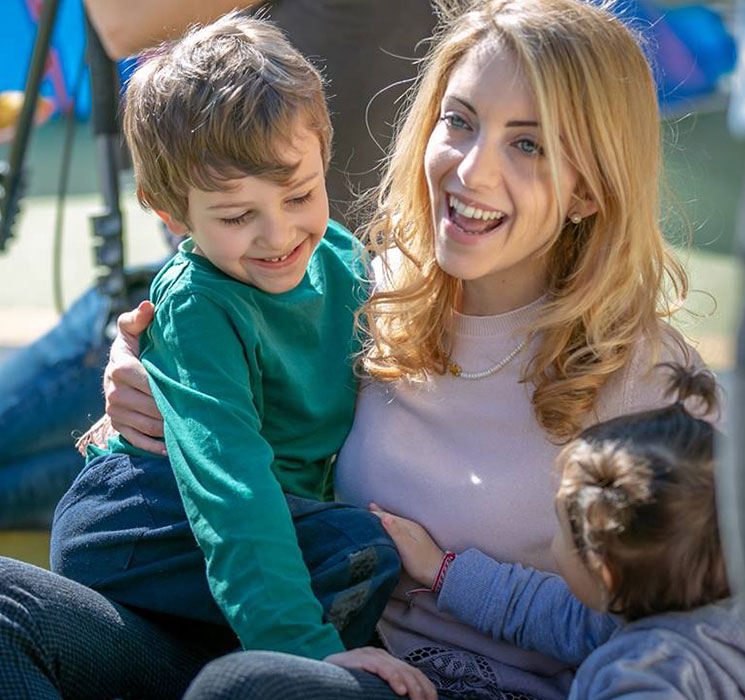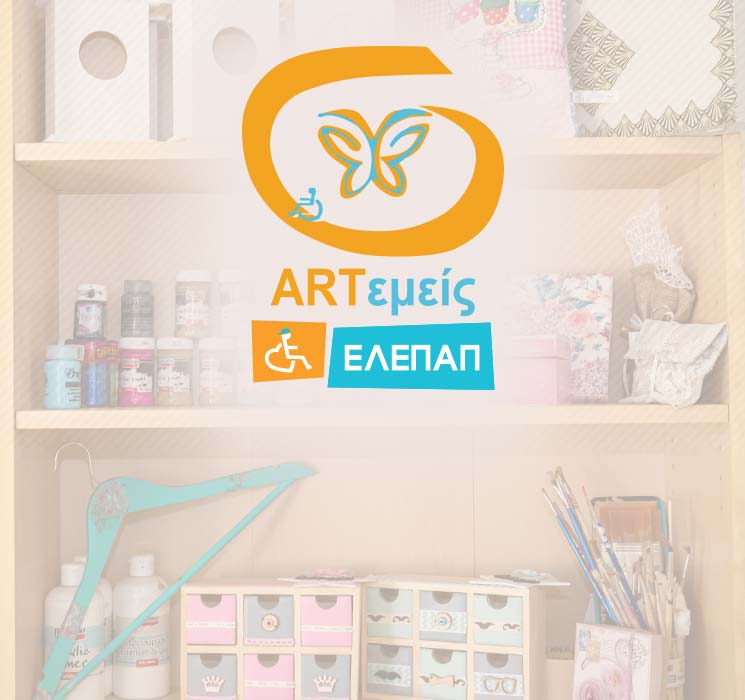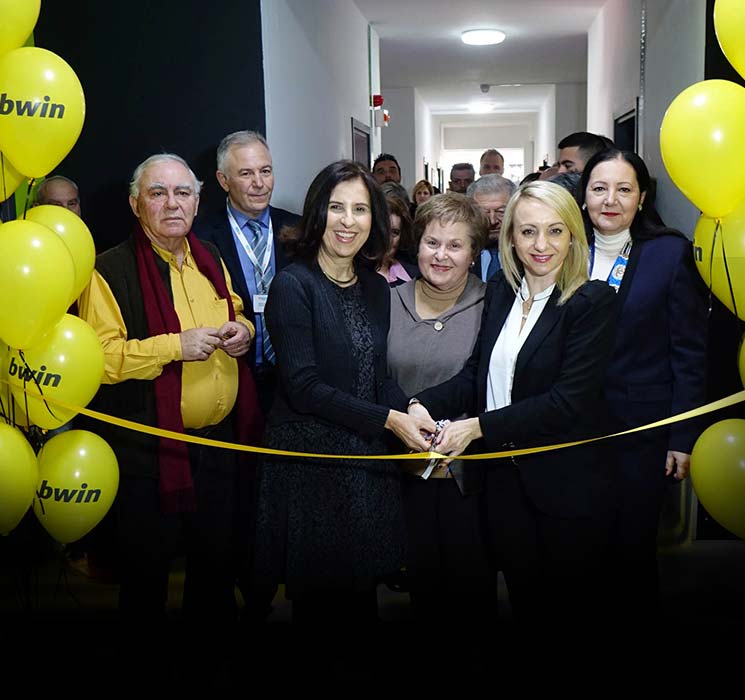Speech Therapy
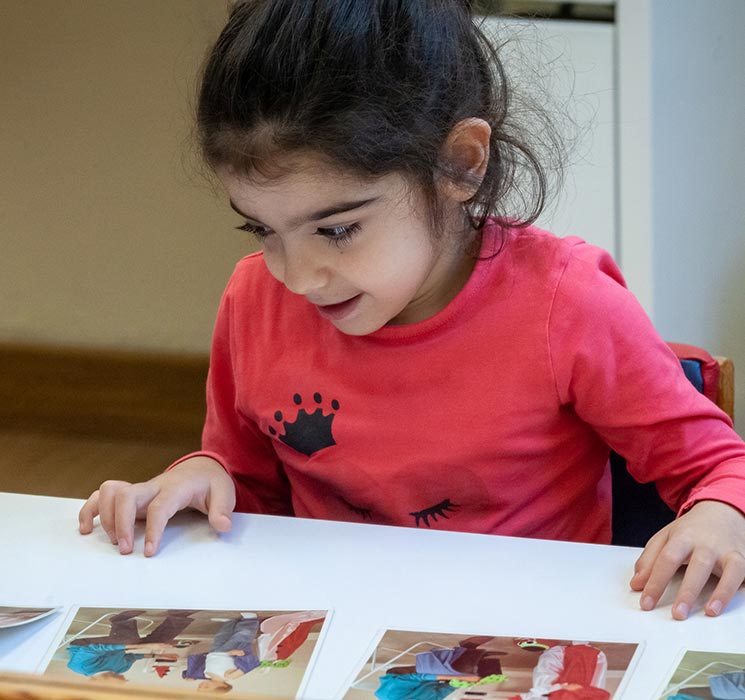
The Speech Therapy Department deals with speech and language disorders and feeding difficulties that occur in infants, preschoolers and school children.
Every child is treated comprehensively, in order to increase functionality in the areas of nutrition and communication. Specifically, speech therapists undertake:
- the assessment of the child's communication and the diagnosis of any speech and language disorders
- the assessment of feeding difficulties
- the timely treatment of feeding difficulties as well as speech disorders with individualized treatment interventions and innovative programs.
The Speech Therapy program is based on the principles of Early Intervention in the framework of the International Classification of Functioning, Disability and Health (ICF) proposed by the World Health Organization (WHO).

The Early Speech Therapy Intervention that is done in collaboration with the families of the infants and with the other members of the interdisciplinary team. The REEL Scale is also used in infants. Informing and guiding parents, as well as the harmonious relationship between therapist - child - parent, helps to implement the appropriate treatment instructions at home. The Intervention includes:
- Prevention: Taking into account potential risk factors (eg prolonged stay in MENN, history of non-oral feeding, difficulty breastfeeding, low body weight, limited interest in interaction, limited verbal communication, etc.) techniques are applied to prevent or alleviate possible future serious difficulties in feeding and / or communicating infants, if possible.
- Evaluation: Through detailed and sensitive history taking by parents, observation of the infant in interaction with people and his environment and / or during feeding, as well as following evaluation protocols (based on ICF), the possibilities are described. and the needs of each infant and the need for intervention is assessed as well as the form it should take.
- Therapeutic intervention
Goals:
- adequate, safe and as much as possible in line with the developmental milestones of the infant feeding. Early treatment of feeding difficulties concerns infants with difficulties due to organic, sensory and / or behavioral causes (eg abnormal reflexes, difficulty breastfeeding, etc.)
- highlighting the infant's communication abilities for the most effective and functional communication with his relatives and his participation in his natural environment
-
-
-
-
-
- Μορφές παρέμβασης:
-
-
-
-
-
- Support and education of parents regarding the recognition of the possibilities and difficulties of their children
- but also the application of the necessary therapeutic techniques in their daily life
- Participation in the Interdisciplinary Team
The aim is the mutual exchange of information, the solution of problems, the holistic treatment of the needs of the infant and the family and the joint goal setting and the definition of the treatment plan.
- Coordinating role in matters of feeding and swallowing:
Communication with all medical and therapeutic specialties involved, referral for imaging examinations when appropriate (eg gastroscopy, chest x-ray, endoscopy (FEES), video radiography (VFSS), etc.), referral to a Clinical Nutritionist and physicians making decisions about the optimal way of feeding (oral or alternative).
- Transition support:
Ensure a smooth transition to a new program or framework when needed, e.g. formal education, external treatment program, relocation of family to another area.
-
Scientific work:
The Speech Therapy team participates in the elaboration of a research project, presents announcements of scientific works in conferences, organizes educational presentations for the staff of ELEPAP and creates protocols of evaluation and therapeutic intervention.
- Evaluation & Therapeutic intervention
Early evaluation and treatment of chewing-swallowing difficulties due to organic causes (eg Cerebral Palsy) or non-organic causes (eg behavior) for adequate and safe feeding of the child and to improve the quality of life of the whole of his family. The evaluation and the intervention and the training of the parents are undertaken by specialized speech therapists in the field of dysphagia.
- Medical monitoring of children
The dysphagia program is staffed by medical specialties (Physiatrist specialized in pediatric rehabilitation, Pediatric Gastroenterologist, Pediatric Pulmonologist), by Clinical Nutritionist, who in collaboration with the speech therapist and parents, individually address the difficulties of each child. The child is referred to each specialty according to his needs (eg respiratory problems, constipation, reflux, low body weight, etc.)
- Dysphagia group
An interdisciplinary team that is an innovation in the treatment of serious feeding difficulties with the aim of dealing with serious feeding difficulties taking into account the needs and desires of the child and the family. There is a medical examination of the child and a discussion between different specialties that deal with the child (doctors, therapists, dietitian, psychologist) and the parents and ways of dealing with the difficulties are suggested.
Speech therapists work with occupational therapists and physiotherapists on a daily basis to educate their children.
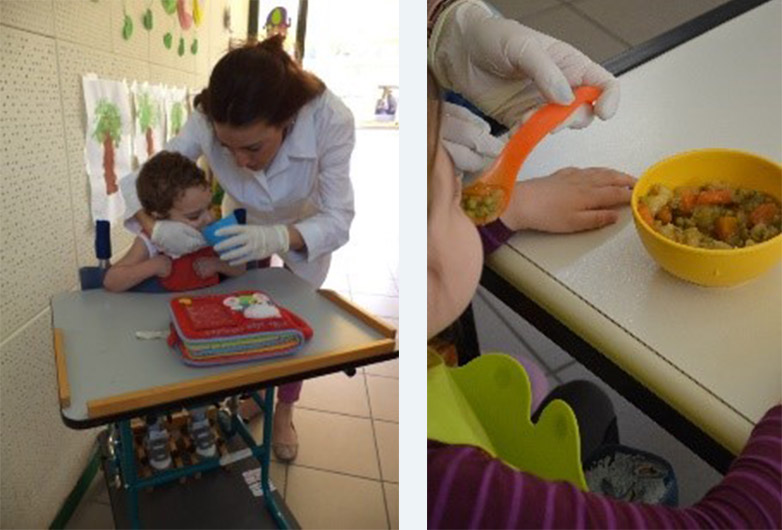
Children with motor and developmental disorders (eg Cerebral Palsy, Syndromes) may have communication difficulties such as speech and / or speech delays, joint disorders, phonological disorders, speech dyspraxia, dysarthria, speech flow disorders.
The speech and / or speech assessment and the diagnosis of the disorders are performed by the experienced speech therapists of the department in order to determine the possibilities and needs of each child, and then to set therapeutic goals in collaboration with the parents.
Therapeutic intervention can be individual, group, or even therapeutic, while supporting and educating parents. The training concerns the understanding of the possibilities and difficulties of the child, and the application of techniques. In addition, there is collaboration with outside agencies, and experts to facilitate the child's communication in other contexts.
